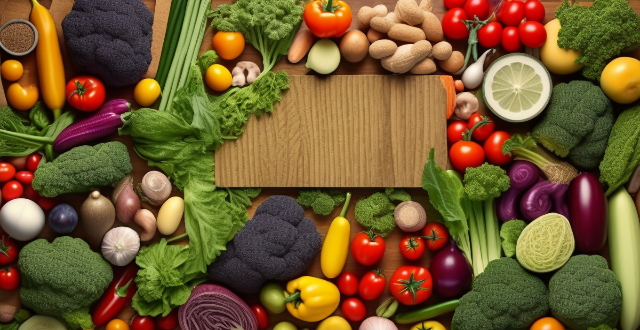When selecting organic food, key factors to consider include certification and labeling, freshness and quality, sustainability and environmental impact, as well as animal welfare and ethical sourcing. Look for products certified by reputable organizations and with clear labeling information. Choose fresh, high-quality products that are free from damage or spoilage. Consider the environmental impact of production and transportation, and choose locally sourced products whenever possible. If consuming animal products, opt for organic options from animals raised in humane conditions. Finally, support ethical sourcing practices and small-scale farmers to promote community sustainability and economic growth.

What are the most important things to look for when choosing organic food?
When it comes to selecting organic food, there are several key factors that you should consider. Here are some of the most important things to look for:
1. Certification and Labeling
a. Organic Certification
- Look for products that have been certified as organic by a reputable organization. This ensures that the product has been grown or produced according to strict organic standards.
- Check for the certification logo on the packaging or label.
b. Labeling Information
- Read the label carefully to understand what is in the product. Avoid products with added preservatives, artificial flavors, or colors.
- Look for labels that provide information about where the product was grown or produced.
2. Freshness and Quality
a. Freshness
- Choose fresh, seasonal produce whenever possible. This will ensure that you are getting the best quality and flavor.
- Check the appearance and smell of the product to ensure that it is fresh.
b. Quality
- Look for high-quality products that are free from damage or spoilage.
- Choose products that have been stored and handled properly to maintain their quality and freshness.
3. Sustainability and Environmental Impact
a. Sustainable Practices
- Choose products from farms or producers that use sustainable practices, such as crop rotation, natural pest control, and responsible water usage.
- Look for products that are packaged in eco-friendly materials, such as recyclable or biodegradable packaging.
b. Environmental Impact
- Consider the environmental impact of the product's production and transportation. Choose locally sourced products whenever possible to reduce the carbon footprint associated with transporting food.
- Avoid products that contribute to deforestation or other environmental harm.
4. Animal Welfare and Ethical Sourcing
a. Animal Welfare
- If you consume animal products, choose organic options that come from animals that have been raised in humane conditions.
- Look for labels that indicate the product is grass-fed, free-range, or cage-free.
b. Ethical Sourcing
- Choose products that are sourced ethically, with fair trade practices and fair labor conditions for workers involved in production.
- Support small-scale farmers and local producers whenever possible to promote community sustainability and economic growth.